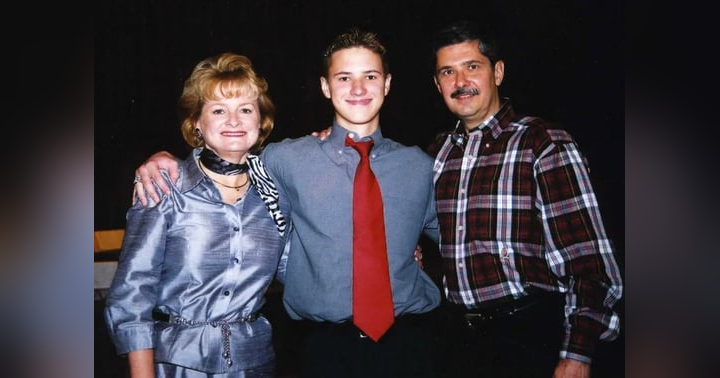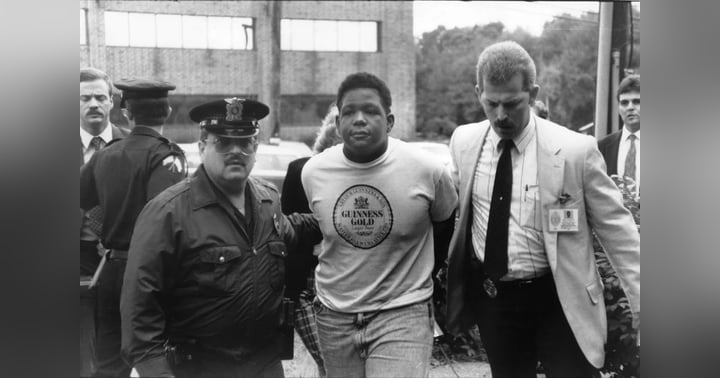Robert the Celebrity Stalker

In 1970, Robert John Bardo was born to an American father and a Korean mother, and as the youngest sibling of seven, his childhood was chaotic. Robert’s dad was in the US Air Force, causing the large family to move states several times, before finally settling down in Arizona when Robert was in his early teens. The frequent moves weren’t the only unstable aspect of Robert’s childhood - one of his older siblings abused him, and he became suicidal, causing him to be removed from his family and put in foster care.
Several other members of Robert’s family were diagnosed with mental illnesses, and eventually, Robert was also diagnosed with bipolar disorder. When he was only fifteen years old, his emotional state got so bad that he was institutionalized. He attended high school up until the ninth grade, when he decided to drop out. During this time, Robert’s life had been taken over by a deep obsession with a celebrity - Samantha Smith, an activist in her early teens who had become famous after her anti-war letter to a Soviet ambassador received international attention.
Robert’s fascination with 13-year-old Samantha quickly snowballed out of control, and before long, he was actively stalking her. He even traveled to Maine in the hopes of meeting her in person when she returned from a trip to the Soviet Union, but after a run-in with the police, he lost his nerve and went back home. Regardless, Robert planned on continuing to stalk Samantha…but then, in 1985, Bar Harbor Airlines flight 1808 crashed with Samantha onboard, killing her instantly.
With the object of his obsession suddenly dead, Robert was left reeling. He tried to focus on a couple of female pop stars instead, but although he briefly became obsessed, he never ended up stalking them. Finally, in 1986, he found somebody who made him feel the same way that Samantha Smith had: Rebecca Schaeffer, an actress on the popular sitcom “My Sister Sam.”
At the age of sixteen, Robert watched an episode of the series, and he was immediately infatuated with Rebecca. “She came into my life [at] the right moment,” he later said. “She was brilliant, pretty, outrageous…her innocence impressed me. She turned into a goddess for me, an idol…since then, I turned into an atheist. I only adored her.”
From that moment onward, Robert started writing to Rebecca to express his admiration. Although she didn’t reply, he still felt like the two of them shared a close bond. The following year, Rebecca actually wrote a reply to one of the letters, sending a short note where she told Robert, “Your [letter] was one of the nicest I ever got.” Although it was the only time Rebecca had ever communicated with him, Robert believed that the note confirmed that his feelings were mutual.
Desperate to communicate with her in some way, Robert ended up arriving at the set where My Sister Sam was being filmed, and tried to locate Rebecca. He was holding an enormous teddy bear and a bunch of flowers, which he hoped he would be able to give to her as the next step in their ‘romantic relationship.’ Instead, he was apprehended by the security team, who refused to allow him on set. A Warner Brothers policy meant that all actors and actresses needed to be informed if a member of the public was making “uninvited advances” for their own safety - however, Rebecca was never told about Robert’s arrival on set. Because Robert had cooperated when he was told to leave, and hadn’t seemed threatening or violent, the security team decided that it wasn’t worth worrying Rebecca.
In the thick of his obsession with Rebecca, Robert’s emotional state was deteriorating. From 1987 to early 1988, his neighbors expressed that he made them feel unsafe in their own neighborhood, and he was even arrested several times for disorderly conduct and domestic violence. He might have left without a fuss when he was refused access to the My Sister Sam set, but the incident didn’t deter him from trying to meet Rebecca. Instead, he hired a detective to find out the actress’s home address - and, using motor vehicle records, they were able to find it.
During this time, Robert wrote a letter to his sister, telling her, “I have an obsession with the unattainable…and I have to eliminate [what] I cannot attain.” He also decided to buy a gun, and when he was denied due to his mental illness, he got his brother to buy one for him.
On the 18th of July 1989, Robert arrived at Rebecca Schaeffer’s home with his gun. A few years ago, he might have met her and expressed his love and admiration for her - but now, he was no longer viewing her in an affectionate light. He had been infuriated to see that she had filmed an intimate scene in one of her recent films, causing him to describe her as just “another Hollywood whore” who had lost the sense of innocence that appealed to him. In his eyes, she had betrayed him.
Robert rang the doorbell of Rebecca’s apartment, told her his name, and showed her the note she’d written in response to one of his letters. Rebecca didn’t seem alarmed by Robert’s presence - instead, she was friendly, shaking his hand before telling him that she had an appointment she needed to get ready for.
After visiting a nearby diner and buying himself breakfast, Robert decided to visit Rebecca’s apartment a second time to give her a Compact Disc that he’d bought her. He rang the doorbell, and, once again, Rebecca answered it herself. This time, she wasn’t as friendly, telling him to hurry up.
Ultimately, Rebecca had no time to react - Robert pulled out a shotgun, fatally shooting her, and then fled the scene. He had been carrying a copy of the book “The Catcher in the Rye” with him throughout the entire ordeal, and, for some reason, he decided to throw it onto the roof of a nearby building when he ran away from the apartment. He was arrested for the murder after being found in a dazed state, stumbling through busy streets and narrowly avoiding being hit by cars.
At Robert’s trial, he said that his decision to murder Rebecca had been influenced by the song “Exit” by U2, which had lyrics that were written to portray the thoughts of a murderer. The song was played to the jury, and Robert sat in the courtroom mouthing the words. Another media influence brought up at the trial was the fact that Robert had been holding a paperback of “The Catcher in the Rye” during the crime. The prosecution pointed out that this detail was incredibly similar to another crime - when Mark David Chapman fatally shot John Lennon, he had been carrying a copy of the same book. Despite the glaring similarity, Robert insisted that the choice of book was nothing but a coincidence. Later on, Mark David Chapman claimed that Robert had actually written to him in prison before killing Rebecca, asking him questions about what it was like to be imprisoned.
The defense attorneys agreed that Robert had killed Rebecca, but argued that he should have a lighter sentence due to his mental illness. Psychiatrist and criminologist Park Dietz testified about his assessment of Robert, telling the jury that Robert was diagnosed with schizophrenia, which had caused him to commit the crime. Despite his significant history of mental illness, the jury found Robert guilty of murder in the first degree. He received a life sentence without parole.
The crime caused intense public scrutiny of state Departments of Motor Vehicles, because many people were concerned that Robert had been easily able to obtain Rebecca’s home address through her motor vehicle records. This resulted in the Driver's Privacy Protection Act being passed by Congress, forbidding the state departments from sharing home addresses. Rebecca’s murder also resulted in the United States’ first laws specifically aimed at preventing stalking.
In July 2007, Robert was walking from his cell to get breakfast when he was attacked by another inmate, who had been convicted of second-degree murder. He was stabbed a total of 11 times with two different homemade shivs, but after a brief period of treatment in the UC Davis Medical Center, he made a full recovery. Eventually, Robert was moved from Mule Creek State Prison’s maximum-security unit to a medium-security unit at Avenal State Prison, where he will likely remain for the rest of his life.






